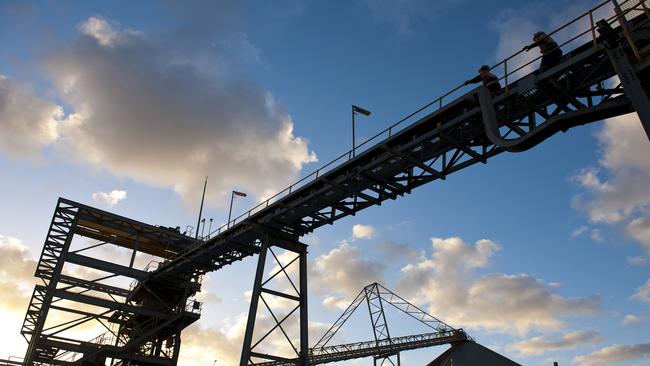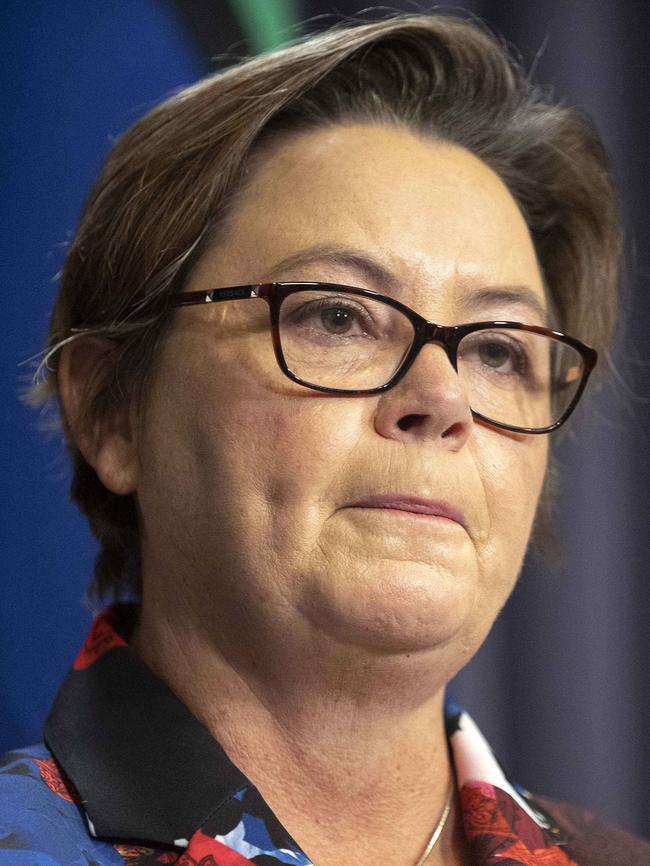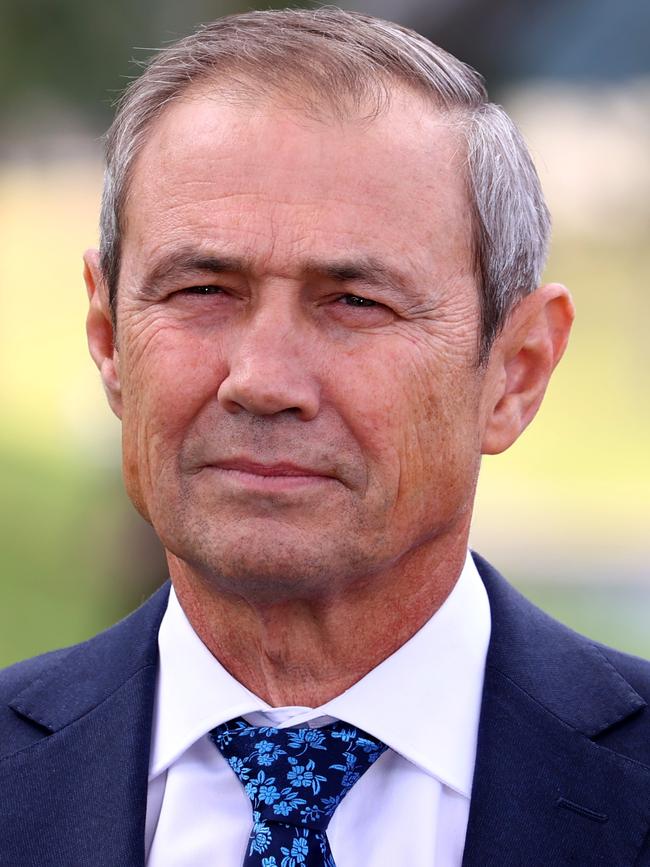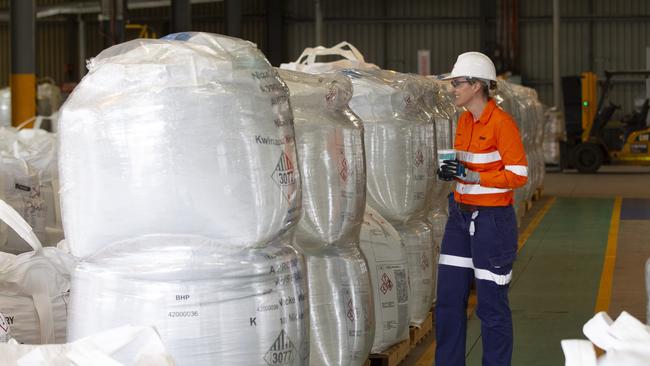Australia’s battery push runs out of charge as BHP flags nickel closure
WA premier Roger Cook has flagged the state could provide royalty relief in an effort to keep the remaining nickel mines in production.

Australia’s hopes of developing a battery manufacturing industry is in tatters after mining giant BHP warned that it could close the nation’s only nickel refinery and smelter.
And Western Australia will consider forgoing hundreds of millions of dollars of royalties as part of a desperate attempt to save what is left of the state’s devastated nickel industry.
Premier Roger Cook on Thursday said WA was weighing up slashing the amount of royalties payable by the state’s nickel miners, following a warning from BHP that it was weighing up putting its Nickel West business – which employs 3000 workers – into care and maintenance.
Nickel West is the latest and by far the biggest nickel operator to consider closure as a result of a slump in prices and a surge in operating costs throughout the industry. A jump in output from Indonesia – where huge nickel industrial parks have been described as 21st-century version of England’s “dark satanic mills” – has flooded the market, making it increasingly difficult for Australia to compete.
BHP’s announcement takes to more than 6600 the number of Australian mining jobs either axed or put in doubt in recent months. It is also a huge blow to Australia’s battery manufacturing aspirations.
State and federal governments have been eager to embrace the potential opportunities of leveraging Australia’s raw materials into the creation of a domestic battery industry. But the crisis facing the nickel industry could leave the country with little to none of one of the materials used to produce batteries for electric vehicles and large-scale energy storage.
Federal Resources Minister Madeleine King said she was in talks with BHP and the WA government about how to help the industry, but warned there would be no quick fix. “A strong resources industry is central to a strong Australian economy. The road to net zero runs through the resources sector,” she said. “The nickel industry faces substantial challenges that cannot be addressed overnight.”


Mr Cook said BHP’s announcement was extremely concerning. “We have some levers around royalty relief and royalty rebates, and we’re looking at all options,” he said. “This is not a market cyclical issue, this is a significant structural disruption to the industry, so it will not only need the state government, it will need governments at all levels to do the heavy lifting to make sure that we can assist the industry.”
WA received about $150m in royalties from the nickel sector last year and was forecast to collect $174m this year. That was expected to climb towards $200m a year in the middle of the decade, but those figures could fall close to zero due to mine closures and royalty relief.
WA pulled the trigger of royalty relief during other market downturns. Colin Barnett’s Liberal government offered royalty rebates to the state’s smaller iron ore miners during a price fall which ended up sinking state finances and his government. Then premier Mark McGowan later offered a royalty discount to Chris Ellison’s Mineral Resources when the company agreed to take on the Koolyanobbing iron ore mine, but the cost of that assistance surged when iron ore prices rebounded.
The tumbling price of nickel has sent Panoramic Resources under, forced Andrew Forrest’s Wyloo Metals to close the underground operation bought through the $760m takeover of Mincor Resources, prompted the closure of First Quantum’s Ravensthorpe mine in southwest WA and Mallee Resources’ Avebury mine in Tasmania, and stopped construction of IGO’s Cosmos nickel operation.
The closure of Nickel West would be an effective death knell for the Australian nickel industry, given BHP operates the country’s only nickel smelter and controls the only refinery.
WA Opposition Leader Shane Love criticised the Premier and Mines Minister David Michael.
“What have we seen from them? They’ve had a roundtable discussion with their federal colleague and no action,” he said. “It’s an indictment on them that they haven’t come forward with a plan with BHP and other nickel providers.”
BHP had already flagged plans to close the Kambalda nickel concentrator from the middle of the year. It relies on ore from Wyloo’s Cassini mine to continue operating. The miner said it could also suspend construction of the West Musgrave nickel mine, acquired through its $9.6bn takeover of OZ Minerals.

BHP says next week’s half-year accounts will include a $US3.5bn writedown on the value of Nickel West, or $US2.5bn after tax. BHP will effectively write down the value of Nickel West to nothing, with the also having a $US900m closure and rehabilitation cost on its books. Nickel West is now bleeding cash, with the unit expected to book a half-year loss of about $US200m, BHP said.
The cost of rehabilitating Nickel West’s operations – particularly the Kalgoorlie smelter and Kwinana refinery – has long been seen as the major barrier to BHP exiting Nickel West, particularly at other periods of low nickel pricing.







To join the conversation, please log in. Don't have an account? Register
Join the conversation, you are commenting as Logout